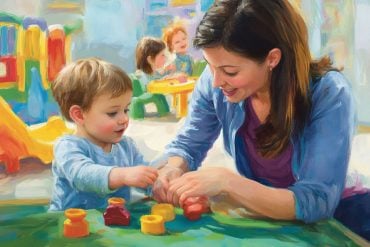Summary: A new study debunks the long-standing myth that only children are more likely to display narcissistic traits than their peers who have siblings. Data analysis revealed only children showed no increase in grandiosity or rivalrous compared to children of the same age with brothers or sisters. Researchers say the stereotype that only children are narcissistic remains prevalent but is highly inaccurate.
Source: Society for Personality and Social Psychology
The stereotype for only children is that they are selfish, or more self-centered than those with siblings. This stereotype is sometimes used as an argument for having more than one child, but researchers from Germany find there’s no evidence for the claim that only children are more narcissistic than children with a sibling. Michael Dufner (University of Leipzig), Mitja D. Back (University of Münster), Franz F. Oehme (University of Leipzig), Stefan C. Schmukle (University of Leipzig) recently published their findings in the journal Social Psychological and Personality Science.
To start, the social and personality psychologists asked if people believe people who have no siblings are more narcissistic than people with siblings.
Dufner and colleagues focused on two core aspects of narcissism: people feeling grandiose about themselves more and people being more rivalrous.
Analyzing questionnaires from over 500 people, they found that both only children and those with siblings hold the view that only kids are more narcissistic in both aspects mentioned before, than those with siblings.
They then analyzed data from a large panel study of over 1800 people, and found the scores of narcissistic traits for only children were not that different from people with siblings. Even controlling for possible socioeconomic factors, these results held true.

“Some of the past research has reported no difference between only children and non-only children in terms of narcissism and some of the past research has reported such a difference,” says Dufner. Due to the nature of their sampling and research methods, “we can now say with rather high confidence that only children are not substantially more narcissistic than people with siblings.”
Narcissism is considered a socially maladaptive personality trait, so lumping only children as being narcissistic can put them at a disadvantage from their peers, suggest the researchers.
“When sociologists, economists, or policy makers discuss the downsides of low fertility rates, they should let go of the idea that growing up without siblings leads to increased narcissism,” write Dufner and colleagues.
“There might of course be economic or societal costs associated with low birth rates, but increasing narcissism in the upcoming generation does not seem to be a factor that is relevant to the discussion,” says Dufner.
Source:
Society for Personality and Social Psychology
Media Contacts:
Annie Drinkard – Society for Personality and Social Psychology
Image Source:
The image is in the public domain.
Original Research: Open access
“The End of a Stereotype: Only Children Are Not More Narcissistic Than People With Siblings”. Dufner, M., Back, M. D., Oehme, F. F., & Schmukle, S. C.
Social Psychological and Personality Science doi:10.1177/1948550619870785.
Abstract
The End of a Stereotype: Only Children Are Not More Narcissistic Than People With Siblings
The current research dealt with the stereotype that only children are more narcissistic than people with siblings. We first investigated the prevalence of this stereotype. In an online study (Study 1, N = 556), laypeople rated a typical only child and a typical person with siblings on narcissistic admiration and narcissistic rivalry, the two subdimensions of the Narcissistic Admiration and Rivalry Questionnaire. They ascribed both higher admiration and higher rivalry to the only child. We then tested the accuracy of this stereotype by analyzing data from a large and representative panel study (Study 2, N = 1,810). The scores of only children on the two narcissism dimensions did not exceed those of people with siblings, and this result held when major potentially confounding covariates were controlled for. Taken together, the results indicate that the stereotype that only children are narcissistic is prevalent but inaccurate.






